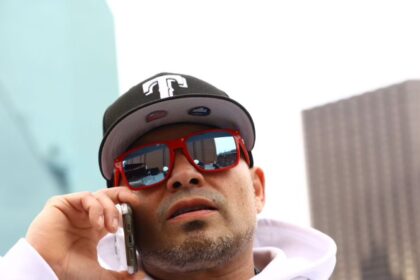Recently, WNBA star Caitlin Clark took a stand against fan harassment during the Indiana Fever’s playoff game against Connecticut. This incident has ignited a conversation within the league about its handling of such situations and its commitment to inclusivity and tolerance.
Clark’s swift action in pointing out a disrespectful fan to officials raised important questions about whether the league has a double standard when it comes to addressing harassment complaints. This scrutiny was intensified by the contrast between the quick response to Clark’s complaint and the prolonged silence Black players faced amidst race-fueled hate on social media and in arenas.
Security had a conversation with a fan after Caitlin Clark pointed them out to the ref. pic.twitter.com/N6RCnAv1qz
— ESPN (@espn) September 26, 2024
The recent influx of attention to the WNBA, courtesy of newcomers like Clark and Angel Reese, has put the league’s values and leadership under scrutiny. Commissioner Cathy Engelbert faced backlash after her ambiguous comments about racism and the business growth of the league, leading to calls for a more robust response from the league.
Connecticut player Alyssa Thomas highlighted the distressing racial comments she received from Indiana Fever fans, underscoring the pressing need for actions to address this issue. Despite the WNBA issuing a statement condemning racism and promising to work with relevant parties, doubts persist about the league’s effectiveness in combatting such offenses.
The players, including DiJonai Carrington, NaLyssa Smith, and Caitlin Clark, have bravely spoken out about the racist abuse they have endured, demanding a safer and more respectful environment within the league. Brittney Griner echoed these sentiments, emphasizing the importance of a uniform harassment policy to protect players from such vitriol.
Moving forward, the WNBA must prioritize concrete actions to address racial harassment and discriminatory behavior within its ranks. By implementing stringent measures to identify and penalize offenders, promoting a culture of respect and inclusivity, and investing in diversity expertise, the league can reaffirm its commitment to the well-being of all its players.

GO DEEPER
WNBA denounces negative messages sent to players
(Photo of Cathy Engelbert: Alex Slitz / Getty Images)








